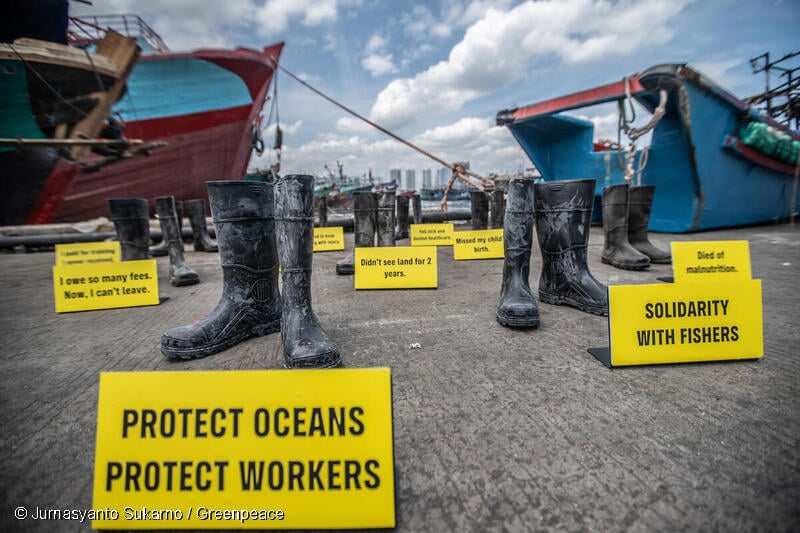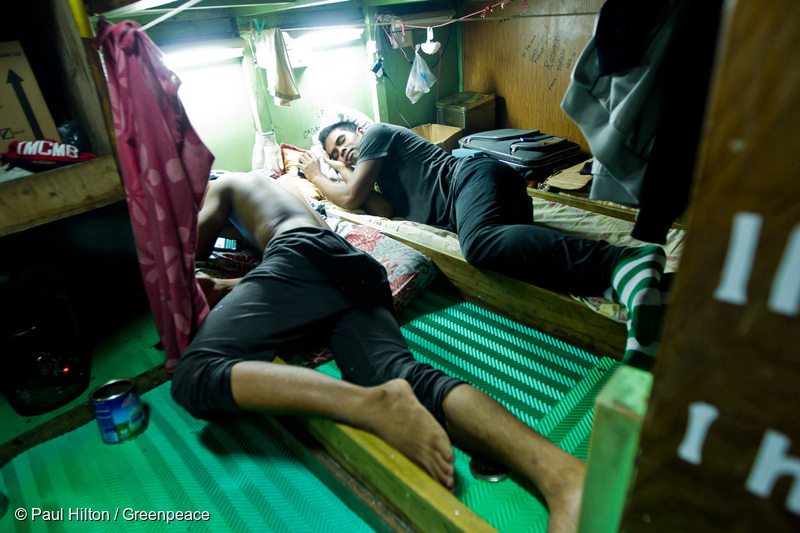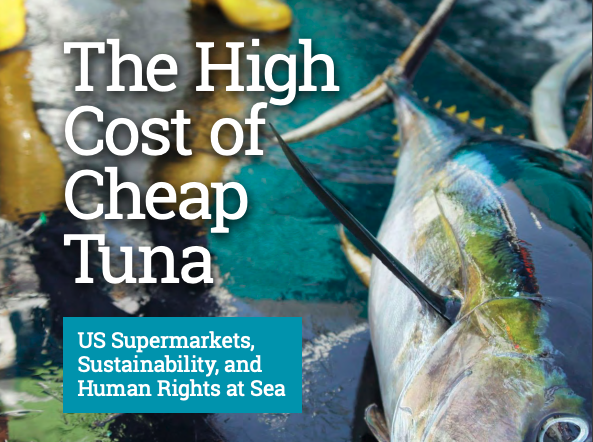Greenpeace USA responds to the Hidden Harvest Report published by Corporate Accountability Lab, which uncovers appalling conditions within the Indian shrimp sector, including discrimination, hazardous labor practices, and environmental degradation.

Greenpeace USA responds to the Hidden Harvest Report published by Corporate Accountability Lab, which uncovers appalling conditions within the Indian shrimp sector, including discrimination, hazardous labor practices, and environmental degradation.
Washington, DC (March 28, 2024)–In response to the Hidden Harvest Report published by Corporate Accountability Lab, which uncovers appalling conditions within the Indian shrimp sector, including discrimination, hazardous labor practices, and environmental degradation, Charli Fritzner, Greenpeace USA’s Beyond Seafood Project Lead, said: “This report is the latest exposé revealing the grim realities within seafood supply chains. Vulnerable workers endure unspeakable suffering, facing physical and sexual abuse and even death just trying to earn a living. Despite widespread consumer desire for ethically sourced seafood, these products tainted by exploitation continue to flood our supermarket shelves.”
“The responsibility of deciphering the ethical implications of every purchase, and the daunting task of weighing the sticker price against the true cost of a bag of shrimp or a can of tuna, should not rest on consumers. The onus lies on the U.S. government to enforce existing measures and create additional measures to prevent the influx of goods tainted by forced labor into our markets, and on the businesses along the supply chain who are profiting. Many of the same brands and retailers cited in Outlaw Ocean’s investigations through their squid and white fish supply chains have also been linked here regarding shrimp sourcing. Sysco, who is a key U.S. government food supplier, has once again been linked with forced labor in its supply chains, which is of particular concern. This highlights that the approach to addressing forced labor in seafood supply chains cannot be a game of whack-a-mole, where businesses simply go into damage control when NGOs and journalists uncover these issues. Instead, real, proactive actions must be taken.”
“At the government level, we call on the Biden administration to implement the National Security Memorandum on Combating Illegal, Unreported, and Unregulated Fishing and Associated Labor Abuses (NSM-11), which will reduce the risk of seafood products entering the U.S. and advance workers’ rights in the global seafood industry.
“Retailers wield considerable influence to drive industry reform. By demanding transparency in their supply chains, championing labor rights, including the fundamental labor rights of freedom of association and collective bargaining, and forging partnerships with grassroots organizations, they can contribute significantly to positive change. Instead, we often witness the industry’s relentless pursuit of cost savings at the expense of human rights and environmental sustainability.”
“Rather than perpetuating a cycle of exploitation by seeking the cheapest options, businesses must meaningfully engage with suppliers to effect genuine change across all stages of their seafood supply chains. At an absolute minimum, they must also prioritize adherence to the U.N. Guiding Principles on Business and Human Rights (UNGP), including implementing human rights due diligence processes and enabling remediation when breaches occur.”
###
Greenpeace USA is part of a global network of independent campaigning organizations that use peaceful protest and creative communication to expose global environmental problems and promote solutions that are essential to a green and peaceful future. Greenpeace USA is committed to transforming the country’s unjust social, environmental, and economic systems from the ground up to address the climate crisis, advance racial justice, and build an economy that puts people first. Learn more at www.greenpeace.org/usa.



